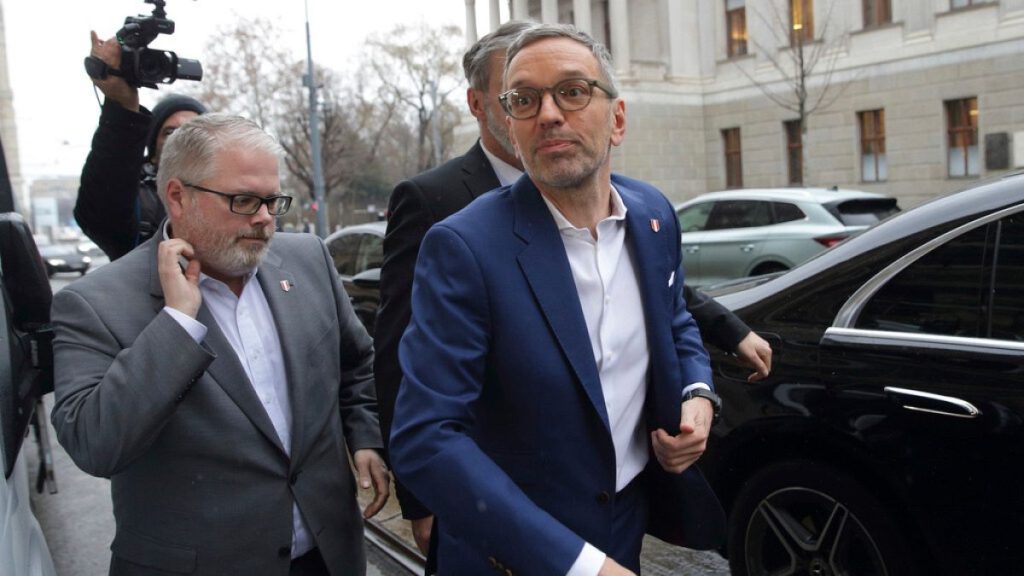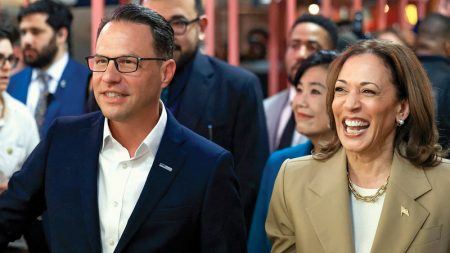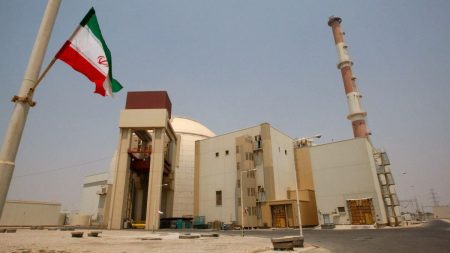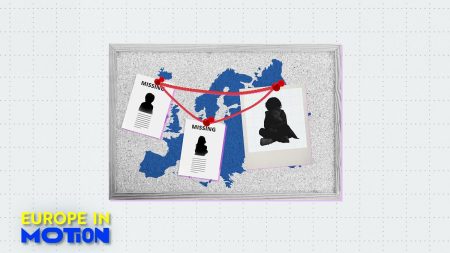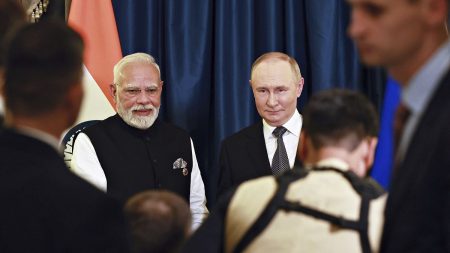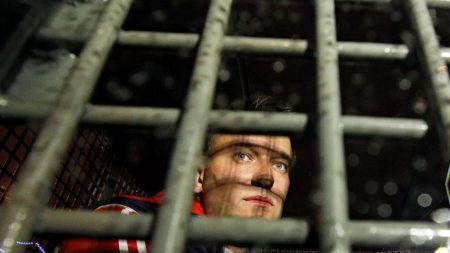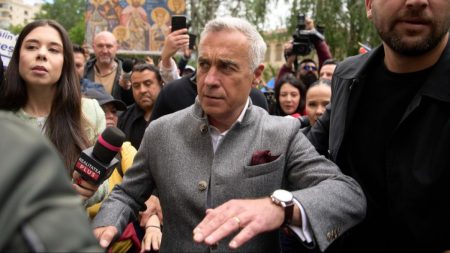Summarize this content to 2000 words in 6 paragraphs in Arabic
The coalition negotiations have dragged on for four months after Austrians voted in September — the longest in the country’s history.
ADVERTISEMENTThe leader of the far-right Freedom Party (FPÖ), Herbert Kickl, has called for “quick new elections” after coalition talks with his party and the centre-right People’s Party (ÖVP) collapsed on Wednesday. Kickl came first in elections held in September with 28% of the vote, however Austria’s other parties banded together in order to keep him and his party out of power. When those talks failed, Kickl was invited to hold coalition talks with the ÖVP.Yet negotiations between the pair appeared strained in recent weeks, with both parties arguing over policy and unable to agree which would have control of the country’s interior ministry. Tensions between the pair reached breaking point on Wednesday evening, when both announced they would no longer be continuing negotiations. Kickl blamed the ÖVP for the breakdown of discussions, telling media he did not take his decision “without regret”. The ÖVP’s leader Christian Stocker said his party had outlined several basic requirements — including adherence to the European Sky Shield Initiative and a cooperation with international intelligence services — which he said Kickl was not prepared to agree to. Austria’s President Alexander Van der Bellen is set to hold talks with the leaders of all parties over Thursday and Friday to explore options for what a new government could look like. In a statement on Wednesday, he said there would be four possible options for Austria: fresh elections, a minority government, a government of non-elected experts or a new coalition comprised of several parties. Austria most recently had a “government of experts” in 2019, when the previous ÖVP and FPÖ coalition broke down over the so-called “Ibiza affair” — in which the then leader of the FPÖ was exposed for discussing corrupt deals with a woman posing as the niece of a Russian oligarch. Austria’s other parties have signalled their willingness to co-operate with the environmentalist Greens, the liberal NEOS and the centre-left Social Democrats all saying they would be prepared to talk with the ÖVP.Talks between the ÖVP, the SPÖ, and the NEOS broke down earlier over disagreements in fiscal policy. Leader of the SPÖ Andreas Babler said that his party was willing to negotiate or “support a government of recognised personalities”. Austria now needs stability, Babler argued. The president of the influential Fiscal Advisory Council — an independent body responsible for monitoring the fiscal discipline of government entities — Christoph Badelt, has warned it would have negative consequences if the parties could not agree on a transitional budget to keep the country functioning. “The state will probably not be able to take on any debt in April/May, or at the latest in June,” Badelt said. “This could of course cause liquidity problems.”Prominent political scientist Peter Filzmaier called the breakdown of negotiations a “bizarre spectacle on the open stage.”ADVERTISEMENTBoth the ÖVP and the FPÖ have, “no viable plan B” and have put themselves in a “worse position than before,” Filzmaier said.
rewrite this title in Arabic Far-right Kickl demands fresh elections after Austrian coalition talks fail
مقالات ذات صلة
مال واعمال
مواضيع رائجة
النشرة البريدية
اشترك للحصول على اخر الأخبار لحظة بلحظة الى بريدك الإلكتروني.
© 2025 جلوب تايم لاين. جميع الحقوق محفوظة.




